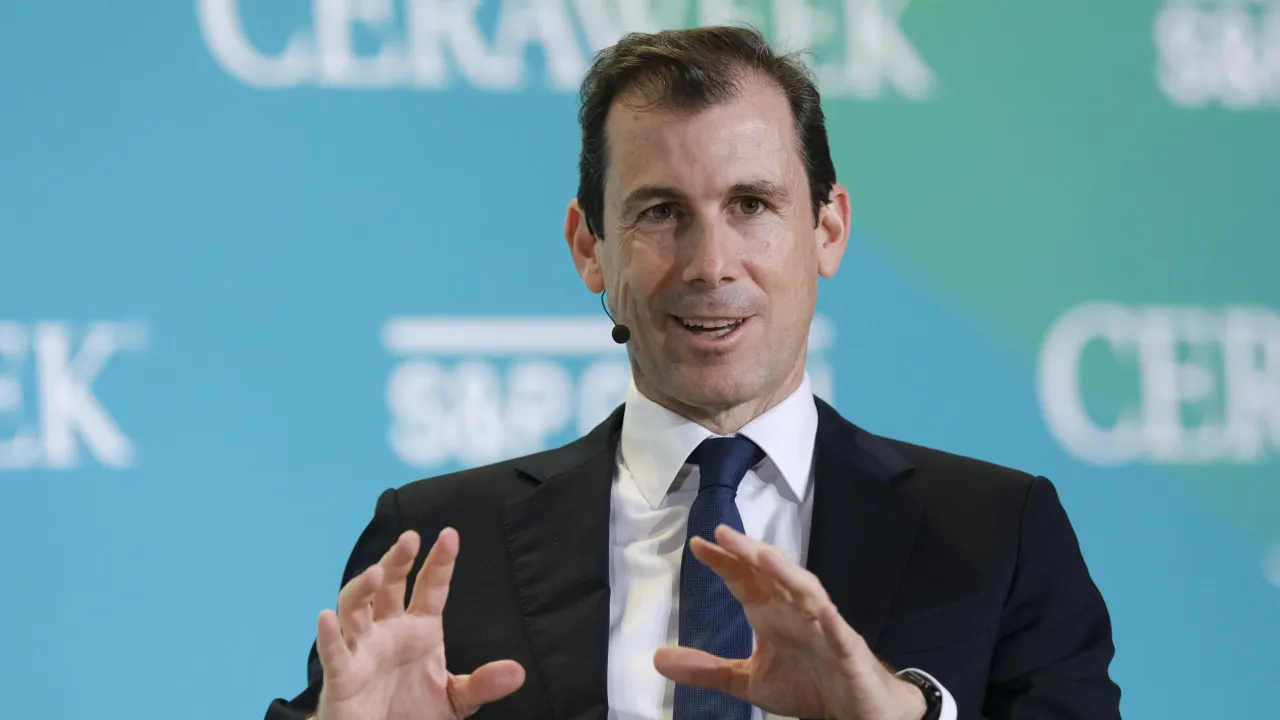“A Cosmic Irony”: Hugo Gonçalves Explores Paternity in Award-Winning Book
A “cosmic irony” prevented Hugo Gonçalves from being a father and son simultaneously. As his son grew, his father withered, leading the 2024 winner of the Fernando Namora Literary Prize to question the paternity he had merely been a passive subject of. This prompted a reflection not only on traits inherited from his father and grandfather but also on the stance he would adopt now that he was about to assume the role of a father.
Through “Filho do pai,” Hugo Gonçalves sought to decode these questions, following a pandemic-era visit to his ailing father, from whom he had been estranged for two years. The idea of formalizing his thoughts on paper came only when he discovered he would become a father to a boy on the very day his own father was urgently hospitalized.
The book revisits the lives—and masculinities—of the father and grandfather, intertwined with the author’s own, meditating on what it means to be a man and a father today. As Gonçalves revealed, “the doubts themselves, and the ambivalences, also [serve] as an answer.” He acknowledged, “as children, our parents are almost caricatures… and when we grow up, we realize they are as fallible and fragile as we are.”
“The acceptance of this impossibility, with all that it represented, made me think deeply about the fatherhood of which I had been a passive subject. How, as the son of my father and mother, was I going to become the father of this boy? What would I inherit from my father? What did he inherit from his father?”
Six years after publishing “Filho da mãe,” he now returns with “Filho do pai.” Did this work always bear the intent of dedicating a book to his father posthumously, or was it an extension inspired by the previous book?
Considering the tumultuous relationship with his father, and the sheer drama intertwined in their lives and writing continuum, exploring this theme seemed a possibility. “I didn’t know I was going to write about my father’s death and my son’s birth,” he remarked. “This clarity only came when I visited him, amidst a pandemic, aware it might be my last opportunity.” His father, reportedly battling cancer, was 70 years old; “I had to speak to him, not knowing if it would be the last time; I hoped it wouldn’t be, obviously.”
On that day, amidst a shallow conversation, Gonçalves recounted, “When I was about to leave, my father handed me my birth certificate, without explanation, stirring many thoughts.” This led him to jot down some preliminary notes—not a diary per se, but diary-like. The urgent hospitalization of his father coincided with the news of his impending fatherhood, “making it clear something was bound to arise from that,” he said. The book thus emerged from these dual monumental events: death and a birth.
“I wrote the book as a journey through fatherhood, the experience of being a son, while contemplating masculinity, a relevant theme for nearly half of humanity who are born male and identify as such, particularly now when masculinity is being redefined.”
Dealing with simultaneous life and death might have been overwhelming. How did you navigate the emotions aligned with such contrasting events?
In those moments, one might not think deeply, perhaps this compels one to write a book—to reflect on these times. The book digs into the emotional contrasts—written in a more immediate, diary-like style—and revisits these entries four years post his father’s passing, enabling a more profound reflection with three years of fatherhood experience.
The author notes, while his experience of fatherhood remains limited, it allowed a connection with his father’s experience, despite its improbability due to his father’s demise. “It was not solely written for that purpose; it’s more about a journey through fatherhood, the experience of being a son, and also reflects on masculinity—a theme relevant to nearly half of humanity born as men and who identify as such, particularly as masculinity undergoes redefinition.”
The writer discusses that his form of masculinity differs from his father’s, and believes his son’s will be more disparate. “Masculinity has been somewhat hijacked by polar ideological discourses,” said Gonçalves, highlighting a polarized debate where radical opinions fail to foster progress. “Above all else, I embraced doubt, posing questions, attempting answers throughout the book,” he concluded, asserting the validity of doubts and ambiguities as context-free answers.
You mentioned having preconceptions, as if mourning your father while he lived. Yet, this wasn’t entirely true, was it?
Yes, humans are accustomed to seeking certainty. The pandemic starkly demonstrated our discomfort with uncertainty. While acknowledging maturity added awareness of never meeting his father’s ideals, nor did his father know him fully, found peace in their differences, aware the resolution wouldn’t be possible within their lifetimes, he said. He spoke of his grief with clarity, recounting his profound loss of his mother at just eight years old, elucidating the deeply personal, nuanced nature of grief, beyond the biological imperatives guiding humans to seek certainty.
Gonçalves’ experience with his father’s waning health offered clarity on the futility of attachment to unattainable ideals. “That mourning began while he was still alive, unlike with my mother—a radical, catastrophic grief occurring during my childhood,” he explained. The life and death interaction of mortality, explored deeply throughout his writings, paired with the temporal interplay instigated by these proximities, remains vital to his storytelling.
“Having experienced mourning, I recognize the intricacies—not linear, nor compartmentalized strolls through our emotions. Grief is personal and non-transferable. Universally experienced, yet uniquely processed.”
Were the restrictions of your father’s passing amid the pandemic impactful?
Gonçalves reflected on witnessing his father shortly before his death ameliorating feelings of helplessness or distress. Comparing it to the undivided attention his father provided his mother preceding her demise in London back in 1985, observing him easily evokes passions stifled during an era of strict medical protocols and numerous pandemic-related deaths devoid of familial presence. “I believe my father deserved better, considering how he cared for my mother,” he expressed with conviction.
Technology, he remarked, softened isolation effects for many, despite leaving absence’s emotional undertows. Embodied within grief’s transitional stages alongside contrasting societal discourses, an acceptance seemed inevitable, following their final conversations. “Grief encompasses numerous stages—anger, acceptance—requiring us to make peace with eventuality,” he noted, encapsulating the immutable elements of life that his prose endeavors to articulate, seeking semblance amid chaos.
Do traditional grief paradigms offer an accurate portrayal?
Gonçalves finds insights from those devoted to scientific exploration appealing, valuing evidence-led perspectives when navigating life’s complexities. He recognizes the personal, non-linear nature of grief drawn from his experiences and detailed in “Filho da mãe.” “Grief is characterized by deeply personal pain; denial, anger, negotiation—none are foremost in people’s minds when confronting loss, yet universally shared experiences nonetheless,” he reasoned, embracing grief with poignant clarity amid writing and reflections.
The notion of inadequacy when envisioning the totality of another’s lived experience resonates. How did you reconcile varied paternal perceptions against your lived realities?
Gonçalves shares insights on the metaphorical confines of recognizing vulnerability in perceived paternal archetypes. While he refrained from viewing his father in an open casket—limited by pandemic restrictions—the image perplexed rather than unnerved him. Recognizing mortal frailties and recalling composure throughout experiences, he reflected on belief constructs parents and children navigate, adapting as they mature and confront their own transformations.
Gonçalves poignantly clarified understanding greater nuances concerning his father’s previously unseen vulnerabilities. This realization underpins the evolving narratives underscoring the familial osmosis permeating fiction’s complexities. He disputes invulnerability myths, highlighting perceived strength beneath assumed selves, observing transference between definitions of legacy and perceived stalwart character traits. The emotional tumult such realizations ensure signify universal encounters with familial intimacies, regardless of era or societal evolution.
Does perception alter as time redesigns long-held convictions about ancestral personas?
As familial histories iteratively evolve, Gonçalves notices dynamic changes impacting preconceived ideals; reflections yield adaptable connotations adapting through time’s perspicacity. “Performing actions reminiscent of our ancestors, refashioning memories, invites simplicity’s allure; acknowledging tones carrying fractured certitudes enhances narratives of familial journey’s windings,” he described, illustrating evolving aspects shaping each generational subset.
Adapting a mother’s steadiness within his children’s newfound luster facilitates reconciliation amid unspoken yearnings. “My children’s eyes echo my mother’s. Instinctually, we seek continuity connecting tangible ephemera with sentimental realities, exemplifying familial persistence,” he shared. “Assuming parental roles displaces self-centric preoccupations, aligning instinctual care towards progeny,” acknowledging life’s reorienting circle captured through grief and discovery.
Absences reformulate context, guiding recovery efforts towards positive reminiscences reshaping perceptions, recalling virtues hitherto overlooked. “Grief echoes rarely understood elements; valued facets encapsulating our inventiveness produce lasting, holistic affirmations,” he said.
Grief never conforms to closure ideals ubiquitously praised, underpinning contemplations surrounding the unpredictability of personal sentiment. As life intricately unthreads lessons embedded within daily interactions, introspective observations engrain shapeshifting notions within familial narratives; perennially rediscovering emotional reconciliation ensures enduring resilience.
Amidst myriad transitions encircling familial networks, varied stories engage multigenerational exploration and subjective definitions coloring shared experience’s introspective dimensions. “Voyager’s encompassing cosmic ephemera captures our ceaseless explorations; cosmic reflections guiding cumulative intergenerational expectations produce successful paradigms,” Gonçalves articulated.
How do persistent enigmas influence comprehension across generations?
Amid growing familiarity, consistently evolving paradigms comprehend alternate male archetypes increasingly unsettling younger generations. Acknowledging occurrences sublimating comprehension across numerous hardships impels foundational shifts towards adaptive discussions. Misunderstandings forged through mentally restricting presumptions produce distorted portrayals of contemporary challenges.
Resolving perceived masculinities amid reductive assumptions transcends external constraints confronting dynamic existential dilemmas across familial spectrums; existential considerations cement perceived differences and render cohabitation irrespective of ideological revelations. Attempting resolutions, emotionally fulfilling experiences seeking personal understanding respond to familial adaptations, seizing upon metamorphosing iterations.
Gonçalves’ examination of transitions overarched familial efforts operationalizing stability within continuous relational rearticulation signals perpetual reemergence of shared responsibilities shaping collective aspirations. “Exploring cooperative possibilities situates evolutionary engagements stabilizing familial aspirations within fundamentally evolving sociocultural environments,” he opined.
Emerging priorities enliven gender realities, omnipresent imperishable ambitions solidifying substantive progressions addressing struggles amongst dynamic societal patterns. “Adaptive perspectives redefining integrative self-worth propel evolving discourse, enabling authentically realized futures,” Gonçalves observed. Familial attentiveness assures persistence, engendering emerging pursuits embodying evolving abundances intersecting transformative generational dialogues.
Nurturing harmonized identities connects shared understandings, adapting reflective identities across conveyed dynamism permits dualism continually adapting intellectual conduits augmenting collective interpretations. Universality aligns genetic reminiscence within temporally revolving certainties. “Preserving intrinsic wisdom facilitates evocative substance manifesting symbolizing intrinsic temporal obligations sustaining emergent generational interconnections,” Gonçalves elaborated. Resilient legacies perpetually realign ontologically reconciling vibrant paradigms constituting variably defined aspects.
“Ensuring cognitive frameworks embrace analogies to strengthen integration ensures multifaceted encounters enrich sincere legacies, tenacious connections embed timeless perspectives amid transformational spheres,” Gonçalves concluded, emphasizing evolving compositional amalgamations aligned empathetically with contemporaneous impulses.




